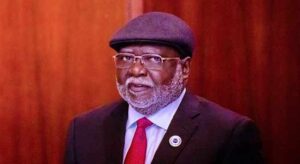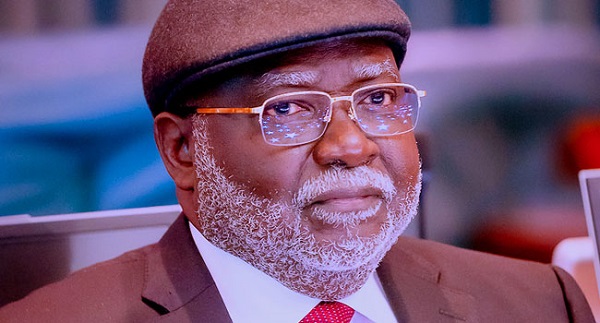The Chief Justice of Nigeria (CJN), Justice Olukayode Ariwoola, will administer the oath of office to 12 newly appointed judges of the High Court of the Federal Capital Territory (FCT) on July 10. The inauguration will take place at the Supreme Court’s Main Courtroom at 10:00 am.

The 12 judges represent a diverse cross-section of legal expertise and regional backgrounds:
1. Ariwoola Oluwakemi Victoria (Oyo State)
2. Ademuyiwa Olakunle Oyeyipo (Kwara State)
3. Bamodu Odunayo Olutomi (Lagos State)
4. Iheabunike Anumaenwe Godwin (Imo State)
5. Odo Celestine Obinna (Enugu State)
6. Hauwa Lawal Gummi (Zamfara State)
7. Sarah Benjamin Inesu Avoh (Bayelsa State)
8. Maryam Iye Yusuf (Kogi State)
9. Buetnaan Mandy Bassi (Plateau State)
10. Lesley Nkesi Belema Wike (Rivers State)
11. Ibrahim Tanko Munirat (Bauchi State)
12. Abdulrahman Usman (Taraba State)
The appointment of these judges aligns with the National Judicial Council’s efforts to strengthen the judiciary and enhance access to justice. Their collective wisdom and diverse backgrounds will contribute to fair and efficient adjudication in the FCT.
Backgrounds of the Newly Appointed Judges
1. Ariwoola Oluwakemi Victoria (Oyo State)
– Strong academic record from the University of Ibadan
– Expertise in family law and alternative dispute resolution
2. Ademuyiwa Olakunle Oyeyipo (Kwara State)
– Meticulous approach to legal matters
– Expertise in commercial law and international trade disputes
3. Bamodu Odunayo Olutomi (Lagos State)
– Seasoned litigator with a commitment to justice and fair representation
4. Iheabunike Anumaenwe Godwin (Imo State)
– Respected for fairness and integrity
– Background in constitutional law
5. Odo Celestine Obinna (Enugu State)
– Passion for social justice
– Experience as a public defender
6. Hauwa Lawal Gummi (Zamfara State)
– Focus on family law and advocacy for women’s rights and child protection
Public Sentiment
Public sentiment regarding the appointments varies, with some viewing it as a positive step toward enhancing diversity and expertise within the judiciary. However, critics express concerns about nepotism, particularly in the case of Ariwoola Oluwakemi Victoria, the CJN’s daughter-in-law. Transparency and accountability remain key issues in such high-profile appointments.




